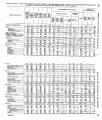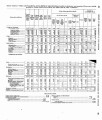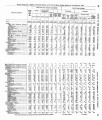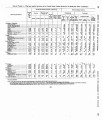| Title |
Annual Report of the Commissioner of Indian Affairs - 1928 |
| Subject |
Indian reservations; Federal government; Indians of North America; Maps; Work; Livestock; Food; Indians of North America--Education; Land use; Allotment of land; Treaties; Agriculture; Railroads; Timber; Health; Art; Religion; Indians of North America--Social life and customs; Natural resources; Irrigation; Education; Water rights; Indians of North America--Dwellings; Employment (Economic theory); Annuities; Indigenous peoples--North America |
| Keywords |
Annual Report; Indian Agency; Reservations; Land Rights; Allotment; Resources; Mining; Tribal Funds; Native Americans |
| Publisher |
Digitized by J. Willard Marriott Library, University of Utah |
| Tribe |
Ute |
| Language |
eng |
| Description |
Excerpts concerning Utah from the Annual Report of the Commissioner of Indian Affairs - Courtesy of the University of Wisconsin Digital Collections. Commissioner of Indian Affairs Charles H. Burke describes the construction and operation of schools, the distribution of federally alloted money, perceived problems associated with the rationing system, the sale of land not alloted to the Indians, the progress of irrigation projects, improvements in health on reservations, challenges in providing an adequate amount of drinking water, etc |
| Type |
Text |
| Coverage |
Washington (D.C.) |
| Format |
application/pdf |
| Rights |
Digital Image © 2011 America West Center. All Rights Reserved |
| ARK |
ark:/87278/s6mw5ct8 |
| Creator |
Commissioner of Indian Affairs; Burke, Chas. H. |
| Date |
1928 |
| Spatial Coverage |
Utah; Washington (D.C.) |
| Setname |
uaida_main |
| ID |
377650 |
| Reference URL |
https://collections.lib.utah.edu/ark:/87278/s6mw5ct8 |





























































